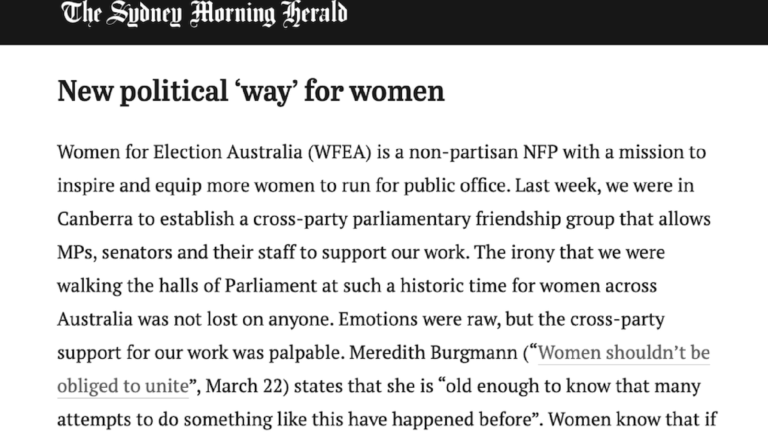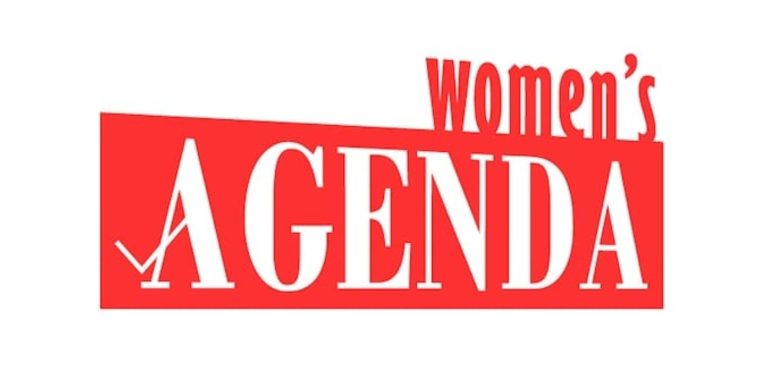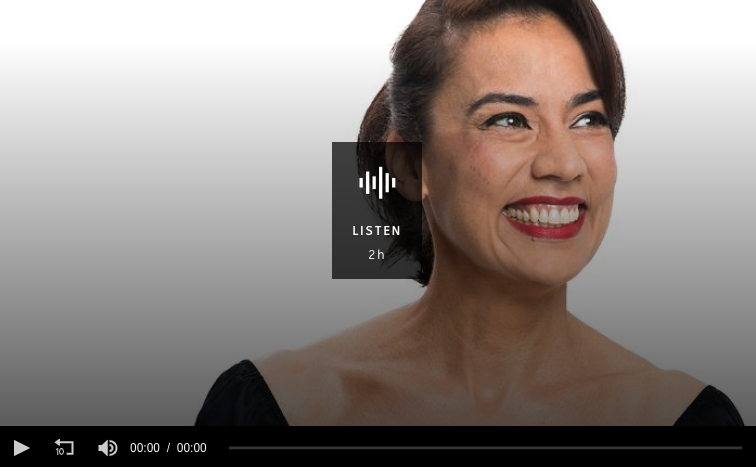Country Caller: Push for regional women to take the political stage
Written by Caitlin Crowley. Article originally published on The Country Caller website on Thursday, 5 October 2023.
Women in rural and regional communities who are already doing “nine-tenths” of what it takes to be a good politician, without getting paid for it, are among those being targeted by a new campaign to achieve gender equality in Australian politics.
Women for Election, a non-partisan educational organisation, is launching national candidate training program, EQUIP: Power Edition, in regional Queensland later this month ahead of next year’s local and state government elections.
CEO Licia Heath told the Caller many women in rural and remote communities already had the skills needed for public office, but were often reluctant to dive into the political process.
“It’s a very opaque process and what we’ve realised is the more transparent that we make the whole process from A to Z the more likely that particularly women are to step into it,” Heath said.
“Having trained over 3000 women in recent years, we’ve witnessed first-hand how many women effectively wield power positively in their communities.
“Typically in volunteer roles – which are very noble roles – but often they’re doing nine tenths of what a good political representative does, but in a volunteer capacity.
“Women for Election understands the barriers that exist for women to get elected and this program will demystify the process and address those barriers so you feel ready and capable to run for elected office.”
Independent Toowoomba candidate Suzie Holt (pictured above) said she completed some of Women for Election’s candidate courses before she ran for the seat of Groom in last year’s federal election.
Holt finished second behind the LNP’s Garth Hamilton, with 43 percent of the vote on a two-party preferred basis.
Holt said the courses were brilliant and were an “eye-opener” around what to expect when running for office.
“There is not a lot of information around and people are reticent to give you information, for whatever reason, I don’t know,” Holt said.
“I think that secrecy around it – what these courses do is open it up and start to get in the doors.
“Until this election, there really weren’t a lot of role models out there for women – there weren’t a lot of women in politics that you could talk to about what is involved in getting down to parliament, what does that mean, to get a team.”
Holt said she wanted to particularly encourage younger women to be “bold and brave” and consider representing their community, ahead of next year’s polls.
Women account for just 37 percent of local government councillors in Queensland and 31 percent of the state’s MPs.
“We still have a lot of work to do in particularly local government – there’s still a lot of male-only councils across the country and those male only councils exist in regional Australia only,” Licia Heath said.
“Something that was very obvious to Women for Election after the federal election – we had 43 of our alumni run in that election – is that there was a significant change in a lot of the suburban seats in the country but that there really was a gaping hole in terms of an increase in the number of candidates who ran in regional and remote Australia, and in terms of any sort of change of conversation in those electorates.
“Our sense is that women are hungry in those regions for us to come and visit them.”
Heath said that voters were increasingly looking to support female candidates and candidates from diverse backgrounds.
“So timing is everything – so if you’ve ever thought about it, I would really consider riding the wave that’s existing within Australia at the moment, because who knows if it’s going to be there in 10 years time.”






